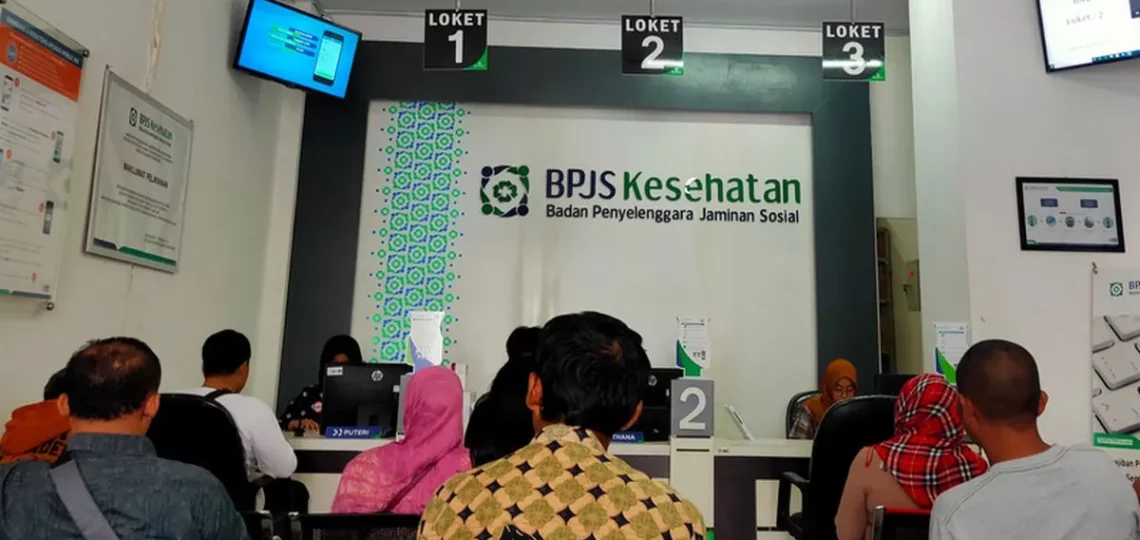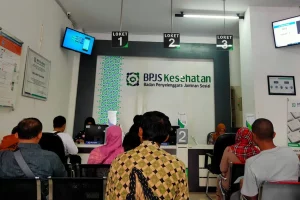
Various Complaints Regarding BPJS Health Services
Various Complaints Regarding BPJS Health Services – Since 2022, Rizky (not his real name) decided to deactivate his BPJS Health membership by not paying monthly contributions. This man from Bekasi, West Java prefers private insurance for his medical needs.
Various Complaints Regarding BPJS Health Services
roskapital – He shared a bad experience with the services at one of BPJS Health’s partner clinics and hospitals. In mid-2018, his child fell ill and when he took his child to the nearest clinic in Setu District, Bekasi, he was advised to look for another clinic without receiving any treatment.
Without wanting to argue further, Rizky decided to go to the hospital which was about 20-25 minutes from his house. Upon arriving at the hospital, he had to queue and wait a long time because there were many BPJS Health patients. After waiting for 1-2 hours, his child was finally able to get an examination. “The process at the hospital is long and complicated. It feels very different when compared to general patients or those who use private insurance,” he said.
Complaints related to BPJS Kesehatan are increasingly widespread on various social media platforms, including the X application (formerly known as Twitter). The new policy implemented by BPJS Kesehatan, where 144 types of diseases cannot be referred directly to hospitals or advanced health facilities (FKRTL), has caused many netizens to switch to private insurance. National Health Insurance (JKN) participants who are diagnosed with the disease must undergo treatment at a primary health facility (FKTP).
“BPJS can no longer be relied on. If this continues, please recommend private health insurance whose system and premiums are not much different from BPJS,” wrote the account @tanyakanrl as quoted by Tirto.
In addition, there is also public attention to the statement of a BPJS Kesehatan employee who admitted to using private insurance for medical treatment. Although he did not mention the employee’s name, the account claimed to use non-BPJS insurance because of the speed of service.
BPJS Watch Advocacy Coordinator, Timboel Siregar, said that the many complaints from the public were a reflection of dissatisfaction with the services provided, both at FKTP and at hospitals. Based on reports received by BPJS Watch, there are various problems in hospital services for BPJS Kesehatan participants.
Timboel gave an example, there are medicines that should be given for 30 days but are only given for seven days. Many patients who are not yet fit to go home are allowed to go home after undergoing treatment for three to four days. In addition, there are also health items that must be purchased by patients themselves.
“The problem is the quality of service. This must be a serious concern in supervision,” said Timboel when contacted by Tirto on Friday, January 3, 2025.
He emphasized that supervision must be the responsibility of the government or BPJS Kesehatan. The reason is, not all hospitals operate well; many still discriminate against active BPJS Kesehatan participants.
—
Thus, Rizky’s experience and other public voices show the need for improvement and enhancement of services in the BPJS Kesehatan system so that it can be more reliable and meet the needs of participants.
Residents display their Driving License (SIM) and Social Security Agency (BPJS) Health or JKN card during the SIM extension process at the Banda Aceh Police on Wednesday, July 3, 2024. Currently, the National Police is implementing a trial period for making and extending SIM A, B, and C with the requirement to attach BPJS Health or JKN in several provinces, including Aceh, West Sumatra, South Sumatra, DKI Jakarta, East Kalimantan, Bali, and East Nusa Tenggara, from July 1 to September 30, 2024.
Read Also : Contoh Ceramah Bulan Rajab Singkat untuk Pengajian
However, there are issues related to discrimination in health services. Timboel highlighted that in Law Number 44 of 2009 concerning Hospitals, discrimination is prohibited. This is also regulated in Law Number 17 of 2023 concerning Health, which emphasizes that patient safety must be prioritized, regardless of BPJS membership status or not.
“In fact, discrimination still often occurs, which reflects the behavior of several hospitals. This is where BPJS has an important role in overseeing this. BPJS is also tasked with receiving reports and complaints from patients,” he added.
On the other hand, the government is committed to providing fair services to all patients. Through Presidential Regulation (Perpres) Number 59 of 2024 concerning National Health Insurance (JKN), it is regulated that health services for BPJS Kesehatan participants must follow the Standard Inpatient Class (KRIS). The purpose of this Perpres is to ensure that all BPJS Kesehatan participants receive equal treatment, especially regarding inpatient room facilities and infrastructure.
There are 12 components that must be met by health facilities to meet the KRIS standards. Although some facilities have followed these 12 criteria, there are still some that have not, and implementation is still in the process.
Until July 1, 2025, the inpatient class system in hospitals for BPJS Kesehatan participants will still be divided into three categories: class 1, class 2, and class 3.
Regarding the 144 types of diseases that cannot be referred to advanced health facilities, these diseases can be categorized into three groups: reproductive health and maternal and child health, infectious diseases, and non-communicable diseases. These three categories are part of the framework established by WHO in the report ‘Tracking Universal Health Coverage: Global Monitoring Report’ as an indicator of success in achieving universal health or Universal Health Coverage (UHC).
“As a government institution that organizes JKN, BPJS needs to be careful in its management,” said Researcher from the Institute for Demographic and Poverty Studies (IDEAS) in the field of Public Health, Nuri Ikawati, in an interview with Tirto on Friday, January 3, 2025.
According to the WHO report in ‘Tracking Universal Health Coverage: Global Monitoring Report (2023)’, Indonesia’s score in handling infectious diseases, such as tuberculosis and antiretroviral therapy for HIV, is very low, namely 45 and 28 respectively. Meanwhile, for non-communicable diseases that focus on handling hypertension, diabetes, and controlling smoking behavior, Indonesia’s scores are 19, 80, and 46 respectively.
Nuri added that several provinces in Indonesia contributed to this low score, especially provinces that face limitations in health resources, such as facilities, fiscal capacity, health workers, and access to basic sanitation and medicines. This results in difficulties in effective handling at the first health level.
What Solutions Need to be Considered?
In addition to various complaints regarding services, the financial condition of BPJS Kesehatan is predicted to experience a significant deficit. BPJS Kesehatan President Director, Ali Ghufron Mukti, noted that this deficit is predicted to reach around IDR 20 trillion during 2024. “The deficit we are facing is not that big, maybe around IDR 20 trillion for 2024,” said Ghufron when met at the Ministry of National Development Planning (PPN/Bappenas) Building, as reported by Tempo.
BPJS Watch Advocacy Coordinator, Timboel Siregar, even estimated that the BPJS Kesehatan deficit would increase to IDR 30 trillion in 2025. Thus, the total deficit estimated for the 2024-2025 period could reach IDR 50 trillion, while the total assets of the Health Social Security (JKS) are currently around IDR 52.40 trillion. “2026 will be a bigger challenge,” he added in an interview with Tirto.
As a solution to overcome this deficit, Timboel suggested that BPJS Kesehatan increase its revenue by maximizing contribution collection. He argued that the main source of revenue for the social security fund or DJS JKN is through contributions. “I think it would be better if there was an increase in membership contributions in 2025, so that a total deficit does not occur and we do not have to wait for assistance after the problem arises,” he explained.
On the other hand, the Institute for Development of Economies and Finance (IDEAS) recommends that BPJS Kesehatan review the premiums that must be paid by the community by considering the severity of the disease. This is expected to minimize the gap between premiums and claims.
IDEAS also suggested that BPJS Kesehatan re-detail membership data, especially those funded by the APBN and APBD. It was noted that around 42 percent of recipients of contribution assistance from the APBN and APBD actually came from well-off community groups. “It is important to increase the number of participants, especially from Non-Contribution Assistance Recipients (PBPU) and Non-Wage Workers (PBPU), so that they remain active and do not relinquish their membership in the middle of the treatment process,” explained Nuri Ikawati, IDEAS Researcher in Public Health.
Read Also : Support for Maintaining Public Health
BPJS Kesehatan’s Response to Public Complaints
A number of complaints regarding BPJS Kesehatan services received a response from management. Head of Public Relations for BPJS Kesehatan, Rizzky Anugerah, explained that drug services for participants are provided for 30 days and are part of the Referral Program (PRB). “In the PRB program, participants will receive medicine for the next 7 days at the Advanced Referral Health Facility (FKRTL). If the medicine runs out, participants can pick it up at the PRB pharmacy,” he told Tirto.
Rizzky also responded to complaints about restrictions on the length of stay at partner hospitals, explaining that until now there is no time limit specified; adjustments to the length of hospitalization are adjusted to the patient’s healing and recovery process. “BPJS Kesehatan has never set a rule regarding the limit of hospitalization days. JKN participants who are hospitalized are entitled to receive services until their condition is stable,” he explained.
To improve JKN services, BPJS Kesehatan together with health facility partners are committed to providing optimal services in accordance with participant rights. This commitment is also based on the JKN Service Promise that has been agreed upon with health facilities that collaborate with BPJS Kesehatan.
Regarding the news that BPJS Kesehatan employees chose to use private insurance for treatment, Rizzky was reluctant to comment further.
“However, we appeal to participants who have difficulty accessing services at health facilities, especially in hospitals, to report it to BPJS SATU! or BPJS Siap Bantuan officers, who can be recognized by the green vests they wear in the hospital,” explained Rizzky.

